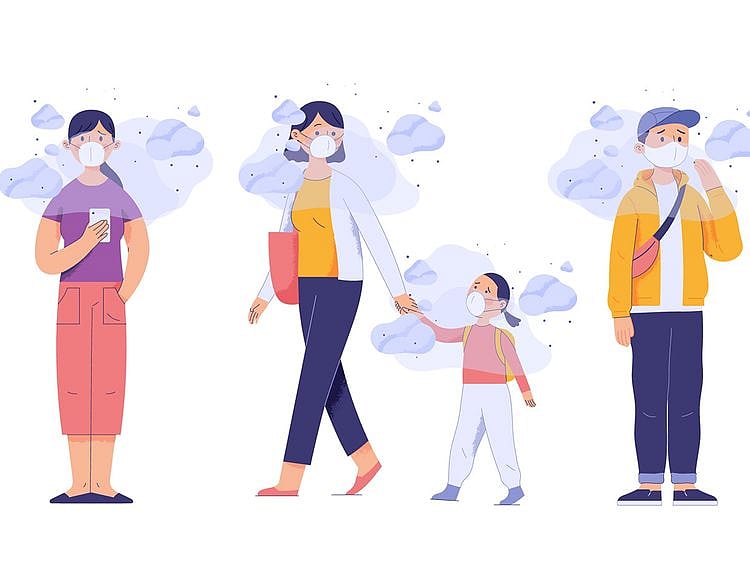How does air quality affect the developing brain?
Kids are particularly vulnerable to toxins as their organs are still developing

The air that we breathe has a direct impact on our bodies – and minds. In today’s world, exposure to fumes from vehicles, engines and various sources is inevitable. And so is the domino effect it can have on the health of a body. In the case of young people, this may include reduced lung growth and function, respiratory infections, and aggravated asthma. And as for young minds, several studies have found that poor air quality can impair children's cognitive abilities, resulting in cognitive decline and an increased risk of depression.
The World Health Organisation (WHO) has flagged that many cities around the world have lower air quality as a direct impact of urbanisation.
Also Read
Why are young brains so vulnerable to social media?How to tackle your child’s first seizure'Tip of the Iceberg' phenomenon in children with neurodevelopmental disordersWhat are air pollutants?
Air pollutants are particles released by engine exhaust on roads and dust including ozone, sulphur dioxide, carbon monoxide, nitrogen oxide and particulate matter.
As for how why they negatively affect developing brains, it’s because of oxidative stress – when there are more oxidants in a body than there are countering antioxidants. This leads to the accumulation of reactive oxygen molecules in the organs.
Intense chronic oxidative stress may manifest as an imbalance of genes in the brain, causing inflammation, adaptive and innate immune responses, necrosis, cellular proliferation and apoptosis, or cell death. These changes result in a neurodegenerative state along with cognitive impairment.
Some studies have found a connect between exposure to air pollution and Alzheimer's disease, too; pollutants can result in cellular changes and inflammation that can cause memory issues. This latter part – of memory impairment and long-term detrimental effects on mental health - is also pronounced in the case of children.
A 2015 study by Barcelona Institute for Global Health Research Professor Jordi Sunyer and colleagues, for example, showed that children who attended environmentally polluted schools did not do well on tests because of declining memory.
However, the children in less polluted schools performed well in their tests. This study was conducted on 2,700 children in Spain. It focused on brain development, indicating that in the brains of children who are exposed to harmful neurotoxins do not develop as quickly as others who are not exposed. It is also seen that lower air quality can also lead to attention deficit hyperactivity disorder (ADHD).
Why are children more likely to suffer from lower air quality?
According to WHO, the following are the reasons that make children more vulnerable to air pollution:
1. Children have developing lungs, which means air pollution can easily interfere with the biological process.
2. Their lungs are developing, which makes them less likely to detoxify, metabolise and excrete toxicants that are present in polluted air.
3. A child's brain in the development phase is highly affected by toxic compounds present in air pollution, severely affecting the cognitive development of children.
4. Children are more prone to inhaling an excess amount of air for each unit of body weight compared to adults.
5. Children are highly active; therefore, they breathe more air with pollutants.
6. Babies who are more exposed to pollutants during pregnancy are likely to suffer from low birth weight and premature birth.
What can be done as parents to protect children against air pollution?
The detrimental effects of lower air quality on the developing brain can get worse with age; the longer the exposure, the worse the damage. While avoiding pollution altogether is not possible, it is possible to play our part in saving lives, by providing a safe and clean environment.
- Dr Arif Khan is a neurologist and the Founder and CEO of UAE-based Neuropedia, Children's Neuroscience Center
Sign up for the Daily Briefing
Get the latest news and updates straight to your inbox
Network Links
GN StoreDownload our app
© Al Nisr Publishing LLC 2026. All rights reserved.